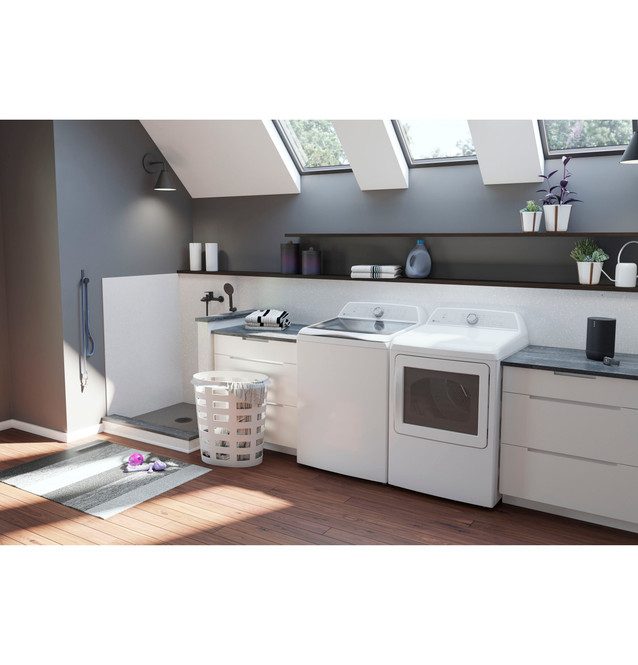Are there appliances that can help knock down my energy bill? Which of my appliances should be energy-saving models? Can I save water as well as electricity while still using modern appliances?
These questions and more feel like part of an adulthood test, and fortunately, we have the wonderful experts at Joshua Bate Trading (Bate’s to locals) to help us prepare. Mr Matthew Gerardo, Vice President of Sales, gave us his personal and professional opinion on these questions and more.
With the cost of electricity going ever upwards, are there any machines that will make an impact on our electricity bills?
Laundry and refrigeration are probably the best models with regards to upgrading to Energy Star Models. People should consider upgrading their refrigerator in particular to be energy saving considering it is a unit that is seemingly running at all hours of the day. That being said, there are many factors that play a part in this and so the results will vary.
For example, the family size and how often a refrigerator is being opened over the course of a day will make an impact. Keep in mind that every time you open and close your fridge, the compressor will have to kick in to get the unit back to (and maintain) the temperature it is set for as cold air is constantly escaping when the doors are open.
Energy Star Laundry units will also definitely have an impact on both your energy consumption + water consumption as they are designed to work with less water.
So, these machines save water as well as electricity?
Yes, they do – particularly for appliances like washing machines and dishwashers as the Energy Star standards continues to improve. The washing cycles of these units use less water as a result of their increased efficiency. The way units operate is also changing which means that, as consumers, we also need to adapt the way we do things as well.
How can I best compare and contrast machines to decide which one best meets my needs?
You need to consider many factors so it is a bit difficult to give a precise answer but in general you should think about:
• Family size
• How often you do laundry
• Cooking habits
• Dimension requirements
• Kitchen/Laundry room layout
• Power requirements
It is always best to speak with a knowledgeable salesperson who will ask the right questions as you consider certain appliance types.
 What features should I look for in an energy efficient washing machine?
What features should I look for in an energy efficient washing machine?
Efficiency of course! One feature I have come across in Energy Efficient models that appears to be catching on is “Smart Dispense” technology. You can empty your entire bottle of detergent into a reservoir and based on the weight that your drum senses when loaded, it will dispense the correct amount of detergent required.
Overuse of detergents and fabric softeners is the most common reason that washing machines fail earlier than their expected life span. Consumers need to adapt to the way they do their laundry as units become more energy/water efficient.
Are there any portable models that would be beneficial for renters?
Yes, there are portable washers, dryers, dishwashers etc. They are handy units but typically only available in compact sizes. Be careful when looking at these as it is important to understand power requirements and water connection requirements.
Most portable washers and dishwashers, for instance, will advertise a “Universal Adaptor” that fits every faucet. Sadly, this is not the case, so I always encourage customers to bring in or email us a picture of a faucet prior to purchasing.
What is great about most portable models is that they have the option to be installed in a stationary setting – if you move properties and find you no longer have a need for a portable model, the portable unit can be installed in a stationary setting.
What options do you have for energy/water efficient dishwashers? Are there any countertop options?
We carry a great number of GE Dishwashers and we can bring in most brands. Most of the models that we carry are Energy Star as well.
There are countertop dishwasher options but most of the good ones are commercial models that would not be practical for the regular household consumer.
You can find countertop models on places like Amazon from various “off brands” but I would not recommend them. While they appeal very appealing, they rarely work well and often break down quite quickly. In addition, running the power and water supply for the cheaper countertop models can be a bit cumbersome.
How can I determine if I need a dishwasher to save water?
It depends on how often you use your dishwasher. Most dishwashers are pretty efficient, especially the Energy Star models.
In the US, reports suggest that a dishwasher uses less than half the water you will use if doing dishes by hand. Then of course, everyone has their own way of washing dishes so this is up for debate.
What detergents do you recommend for dishwashers and washing machines?
The brand is not that important, but it is very important to look for the “HE logo” on any detergent you purchase. HE stands for “high efficiency” and refers to the amount of suds the detergent creates during a cycle in either a washer or a dishwasher. HE is designed to have less suds which is crucial to the longevity of a unit (especially with a water conscious unit).
Do you have any personal secrets on how to remove stubborn stains? How do YOU get grass or wine stains out, for example?
I personally love Oxi Clean. It has worked very well for me and most consumers that I deal with.
Also keep in mind that most models will have a “Soak” feature (and some even have what is called a “Stain Station”) which allows you to pre-treat clothing prior to washing it as a regular load.

